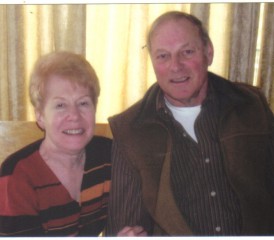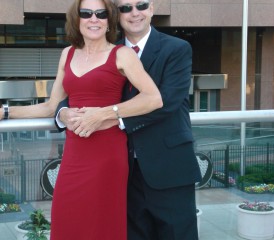Survivor Insight Series | Wisconsin Mesothelioma Survivor Thrives Outdoors, Not Conceding

Fact Checked | Written by: Tim Povtak | Last Update: 10/23/2024 | 4 Min Read
Update: Bob’s son informed us that his father lost his battle with mesothelioma on Oct. 26, 2012.
Bob O. already has his spring calendar so booked – a garden to plant, grass to cut, fish to catch, wild turkey to shoot – there isn’t time to worry if he’ll be around to see it through.
He’s too busy for that.
Surviving mesothelioma has not been easy by any measure, but Bob has become an unassuming beacon of hope for anyone facing a cancer diagnosis that includes a quicker-than-anticipated end.
“It’s still ringing in my ears, what the doctor told me: ‘You have about 18 months to live,’ ” said Bob, whose last name is being withheld over privacy concerns. “In a way, that kind of motivated me to do things my way.”
7-Year Survivor of Mesothelioma
Bob, 71, was diagnosed with malignant pleural mesothelioma (MPM) in May of 2005, shortly after he won his fight with prostate cancer but before his wife was diagnosed with Parkinson’s disease and breast cancer.
Today, they wage their battles side by side, leaning on each other, setting an example for those around them.
“We’ve never given in, never conceded anything,” Bob said from their home in up-state Wisconsin. “We both have our days, and it’s constantly on my mind, but I never ask, ‘Why me?’ I’m always asking, ‘How can I live with this?’ I still have a lot more I want to get done.”
Shortly after his diagnosis, Bob underwent an aggressive pleurectomy/decortication, the removal of the pleural lining around his lung and any tumors that were attached. He declined the chemotherapy and radiation treatments that the surgeon and oncologist suggested to help kill more cancer cells, preferring a different plan of attack.
He already had seen what the post-operative treatments did to his cousin, who died of a different cancer at age 55 after being worn down by exhaustive chemotherapy treatments. Bob decided he would fight cancer on his terms and not by any chemotherapy schedule.
“All I saw my cousin do was deteriorate with that stuff. It was hard to watch. He used to go hunting with us. I’m not saying everyone should do what I did, but they certainly should look at the options,” he said.
Fighting Mesothelioma on His Terms
“I wasn’t going to give up what I loved doing just to go through chemotherapy, which would have made me miserable.”
After recovering from the original surgery, Bob dramatically altered his diet, loading up on anti-oxidants to strengthen his own immune system. He went on a strict exercise regimen. He stayed active mentally and physically.
He learned all he could about his disease. He and his wife continued with their long-awaited retirement plans, moving to their cabin-home on Lake Eau Claire, Wisconsin.
“We thought we were headed for a good long retirement, then all of this hit and we had some decisions to make,” said Bob, an avid outdoorsman who retired after a career as a school teacher. “I don’t kid myself. I can’t do a lot of things like I used to. I can’t hike through the snow anymore. I get out of breath quickly, but I can still get out and do things. I’ve got plenty of work to do.”
During his college years, Bob worked summers at an iron ore mine in Minnesota. He also served four years in the Navy, trained as a machinist mate, where he worked with valves, gaskets and insulation material, all of which exposed him to asbestos. He spent considerable time aboard the USS Midway and never lost his love of the water.
He still fishes regularly. He enjoys hunting — for deer in the fall and turkey in the spring. Just being outdoors and being active makes him content.
He has a garage filled with tools, and he tinkers with all of them. He has a tractor for the yard, a snow blower for the drive, and a rototiller for the garden. And he won’t give up any of them.
“I can’t sit back and just accept this (diagnosis). I have to stay busy. I set goals and work toward them,” he said. “We all have bad days, but I tell people to try and stay positive.”
Bob’s daughter is a physician’s assistant. His son is an electrical engineer. Both helped him research various alternative therapy ideas, but there was very little positive information they could find about mesothelioma, which has no known cure.
“It (the diagnosis) was frightening at first,” Bob said. “But I’ve enjoyed life. If it ended tomorrow, I’d have no regrets. I’ve enjoyed all the ups and down, had a good ride. I always say, ‘Go for one more good day.’ “





